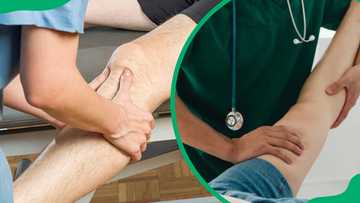Health through the decades: Maximise each milestone
Ever heard the saying that age is just a number? Many 80-year-olds still possess the physical and mental stamina of a 30-year-old because they recognised the value of their personal well-being early on. As our biological clock ticks on, our bodies and minds change. Luckily, there are various practical steps we can and should take to make the most of every age milestone.

Source: Original
Teenage Years
What happens?
The teenage years are a rollercoaster. Besides significant growth spurts, girls start menstruating, boys’ voices break, hair appears, girls’ hips widen, and boys’ shoulders broaden. Hormonal changes can lead to mood swings, irritability, anxiety, and sometimes even depression.
Five(5) things to do:
- Accept yourself
- Eat healthily and get enough sleep
- Exercise
- Establish a healthy routine
5. Preventive care:
- General preventive care (eyes, teeth, check-ups, etc)
- Human papillomavirus (HPV) vaccine
The Twenties
What happens?
The lifestyle choices we make in this decade can drastically impact our health in later years. Students and young professionals often don’t prioritise their health, spending long hours studying or working, with little time for physical activity or healthy food. These five things play a key role in our twenties: body mass index (BMI), alcohol intake, smoking, eating habits, and physical activity.
Five(5) things to do:
- Learn to cook
- Find the right career
- Drink less and exercise more
- Choose the right medical cover
5. Preventive care:
- Check-ups for eyes, teeth, blood pressure, blood sugar, and cholesterol
- Tests for intimately transmitted diseases
- Breast and testicular self-checks
The Thirties
What happens?
In your thirties, stability in your personal and professional life increases. Focusing on long-term health becomes more important, especially if you have a family history of disease. Evaluate your medical aid plan annually and begin financial planning for your retirement and dependants.
As our wrinkles increase, our metabolism slows, muscle mass decreases, and energy levels may drop. Muscle mass decreases by 3-8% per year and heart rate by 5-10% per year. Fertility and the ability to concentrate also decline in our late thirties.
Men should watch their weight, make sure they get enough sleep, and control stress levels since all these factors affect testosterone levels. Women should stay hydrated and decrease salt intake to reduce symptoms of premenstrual syndrome (PMS). Stress can also lead to mental and physical health issues if not managed properly.
Five(5) things to do:
- Invest in effective nutrition plans
- Get regular exercise
- Build meaningful relationships
- Focus on finances
- Preventive care from your twenties plus:
- Cervical cancer tests
- Immunisations for your children
- New skills to keep your brain sharp
The Forties
What happens?
Forty brings noticeable physical and emotional changes. You may be more susceptible to health issues like high blood pressure, high cholesterol, bladder infections, kidney stones, osteoarthritis, depression, and anxiety. Hormonal changes play a bigger role, especially for women approaching menopause. Decreased testosterone levels in men lead to reduced muscle mass, energy, and libido.
Stress is significant, as you might be at the peak of your career with more responsibilities. It’s important to manage stress and proactively manage your health with regular check-ups, healthy eating habits, and physical activity.
Five(5) things to do:
- Eat for energy
- Move for a better you
- Ensure adequate sleep
- Relax
- Preventive care from your thirties plus:
- Mammograms
- Pap smears
- Prostate exams
- Colonoscopy
The fifties
What happens?
Retirement looms in our fifties. But the risk of chronic diseases, such as heart disease, stroke, and diabetes, also significantly increases. Bone density and muscle strength, on the other hand, decrease and the risk of fractures becomes a concern. Women experience menopause with symptoms like hot flashes, night sweats, weight gain, and changes in sleep patterns and mood. Men experience further decreases in muscle mass, energy levels, and libido.
Exercise and a healthy diet are crucial to manage these changes. Managing stress through relaxation techniques and healthy habits is also vital for overall well-being.
Five(5) things to do:
- Choose foods rich in calcium and vitamin D
- Stay active for joint and muscle health
- Prioritise mental health
- Maintain good sleep habits
- Preventive care from your forties plus:
- ECG or stress tests
- Bone density tests
- Eye tests
- Cancer skin checks
- Blood pressure and cholesterol tests
The Sixties and Beyond
What happens?
Your sixties and beyond are a time for renewal, rest, and perhaps travel. However, your health and well-being need more attention. Physical strength and endurance decline, making regular physical activity essential. Diet plays a crucial role, and it’s important to choose nutrient-rich foods.
You should especially not neglect your mental health. Isolation from friends and family can be an issue, especially if you no longer work full-time. Engage in social activities and focus on cognitive health. Activities that stimulate the brain, like reading, games, and learning new skills, can help keep your mind sharp.
Five(5) things to do:
- Enrich your body with nutrition
- Stay fit and active
- Promote mental and emotional well-being
- Keep your brain busy
- Preventive care from your fifties plus:
- Regular eye and hearing tests
- Annual test to detect any decline in cognitive abilities
Maximise each decade by prioritising your physical, emotional, and mental well-being. Through preventive care and the right lifestyle choices, you can lead a long, happy, and healthy life. Remember, age is just a number!
Medihelp got a medical aid plan for everybody. For more information, our website here: https://bit.ly/3NURO2n
PAY ATTENTION: Follow Briefly News on Twitter and never miss the hottest topics! Find us at @brieflyza!
Source: Briefly News






